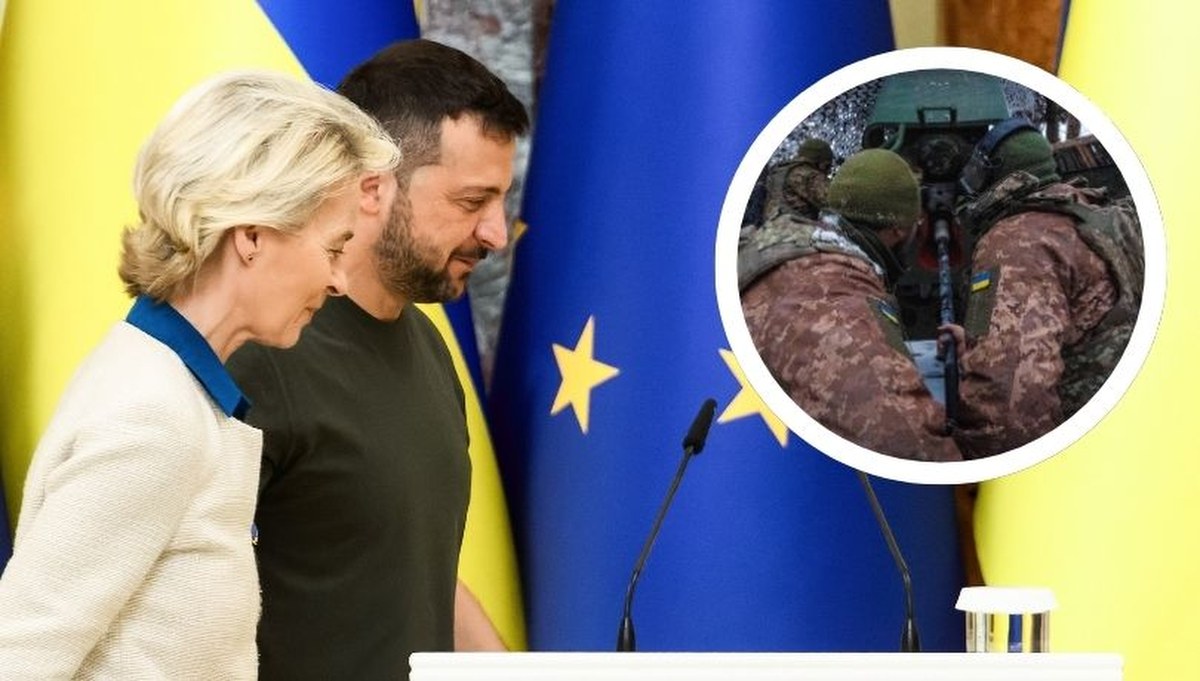– Clearly the Americans had much more assets in these negotiations. To any extent, the European Union has given up decently – it assesses the US-EU framework agreement on trade by Dr Tobias Gehrke, elder Geoeconomic and economical safety Analyst of the European abroad Affairs Council (ECFR) – a European think tank from Brussels.
– The talk was clearly marked by Damocles's sword in the form of security, Ukraine and NATO. It follows that Europe, if it does not have more defence autonomy, will besides not be able to accomplish the economical independency it wishes for," adds ECFR expert.
Experts: The US had a safety advantage
According to Dr. Cinzia Alcidi, head of economical policy at the Think-tank Centre for European Policy Studies (CEPS), these negotiations active more than transatlantic trade.
– We must be realistic: many EU economical assets have not been utilized in talks, due to the fact that Europeans know that they must have America on their side in the war in Ukraine," said CEPS expert.
This can be seen in these records of a joint message by Brussels and Washington, where Europe declares, despite plans to make its own defence industry, plans to buy weapons from the US.
What is in the USA-EU Framework Agreement?
The agreement, which develops the findings reached in July by European Commission president Ursula von der Leyen and US president Donald Trump, assumes, among another things, that the US will reduce the duties from 27.5% to 15 percent for cars and car parts. Condition? Bagatela: The EU is expected to abolish duties on all American industrial goods, including 10% for cars.
The US will besides impose a maximum of 15% of tariffs on drugs, wood and chips on Europe. The duties on steel and aluminium stay at 50%. What Washington and Brussels have here is the announcement of cooperation on reducing overproduction especially from China. The EU has besides won wider tariff exemptions for cheaper generic drugs, but the European pharmaceutical manufacture is informing that US tariffs can cost up to EUR 18 billion.
The Union besides failed to keep duty-free access for wines and another alcohols to the US market. Although Commissioner for Trade, Mr Šefčovič, announced that the talks would continue, European producers inactive have a 15% duty.
EU-US trade agreement. What effects on EU citizens?
What does the EU-American deal mean for European consumers? According to Cinzia Alcidi of CEPS, average citizens will not feel besides powerfully its direct consequences, but they will be felt by American buyers of EU products. Tobias Gehrke points out that, after lowering already low duties, any goods imported from the US can be cheaper.
However, both DW interlocutors point out that this does not necessarily mean besides much competition for European producers due to the preference of EU consumers.
“I uncertainty we will shortly see the inhabitants of a tiny mountain village in Italy driving a Ford F150,” Tobias Gehrke says. Cinzia Alcidi adds that large, fuel-eating cars from the US usually have a tiny share of the EU marketplace due to the fact that they are hard to park in European cities and that petrol in the EU is more costly than in the US, so even the abolition of the existing 10% EU work should be of greater importance. The only exception would be Tesla, a comparatively tiny electrical car suitable for EU cities.
The CEPS expert states that, of course, fresh trade conditions between Europe and the US can rise concerns, for example, about the traditionally protected agricultural sector in the EU, due to the fact that European consumers can choose more cheaper goods from the US on the store shelves, while "made in the EU" products will become more costly in the United States. However, in her view, due to the differences in culinary and qualitative preferences of Europeans and Americans, it is doubtful that products from across the ocean should abruptly become a serious competition for EU producers in the interior market.
EU-US trade agreement. What effects on companies?
On the another hand, the European business of exporting to the USA will in most cases gotta face higher duties than before. "And that sounds beautiful bad, but the mention point is the terms of the US agreements with another countries – Japan, Korea or China. Nobody truly got a better deal. This agreement is not good for Europe, but it does not gotta mean that we will lose a immense part of the American marketplace – Tobias Gehrke emphasises.
According to an ECFR expert, "many American companies and many American consumers will proceed to buy, only more expensive, European products – either due to the fact that they deficiency alternatives or due to the fact that competing goods from China, Japan or South Korea will be even more costly than those from Europe. However, what advises European companies is the patient diversification of the outlets.
More importantly, the EU-American arrangements besides covered the principles of sustainable improvement and environmental protection. Again, the EU has stepped down and promised to take account of US concerns about the reporting directives (CSRD) and due diligence (CSDDD) - although Brussels itself plans to reduce their scope due to the request to increase economical competitiveness.
Digital economy delayed
Big Techy was the large absentee of this circular of negotiations. What the EU and US agreements lacked is the arrangements for EU digital rules. And experts say that's good news.
Americans consider the Digital Services Act or the Digital Markets Act to be discriminatory for their technology manufacture and the largest companies. "Just a fewer weeks ago, there were concerns that they would usage negotiations to combat our digital regulations. That did not happen – Tobias Gehrke is happy.
Is predictability and economical stableness the best thing Europe can get out of the agreement with the US? Dr. Alcidi is not convinced of this. “The glass is half full and half empty, and Commissioner Sefcović prefers to item this full part,” says CEPS expert. He stresses that although the uncertainty associated with US trade policy may have decreased somewhat, due to Donald Trump's volatility, it is hard to talk about the return to stability. besides crucial for assessing the result of the negotiations are, according to Alcidi, the pace of changes in the global situation and the comparison of the conditions that another partners have received from the EU White House.
"The situation is better than the 1 that threatened the Union"
"Compared to the planet of 2024, erstwhile customs between the US and Europe were very low or even non-existent, the situation changed to a disadvantage for the Union. However, compared to the early spring of 2025, erstwhile Trump launched the customs policy of blackmailing the planet – the situation is better than the 1 that threatened the Union – says Dr. Alcidi. Tobias Gehrke concludes: “Many of this shaking of the swords that Americans have started around our regulations has been subdued for the time being. I believe that, despite economical concessions, Europeans have effectively removed any of the topics from the discussion. I didn't number on it a fewer weeks ago."















